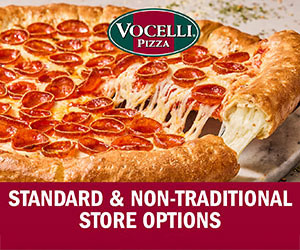Home Instead Senior Care Network is Listed First on Kiplinger's 'Eight Low-Cost Franchises for Hard Times'
Kiplinger’s Top Eight Low-Cost Franchises for Hard Times list, published in September 2011 on Kiplinger.com, includes the Home Instead Senior Care® network. The network offers tips on why franchising is such a great way to make business ownership a reality.
Omaha, NE (PRWEB) October 29, 2011 - Laid off or just tired of working for someone else? Would-be entrepreneurs may not believe they have the financial wherewithal to start a business, especially in the current credit crunch. But franchising can be one way to make it happen. And a healthy industry such as home care could be the way to go.
Tracy Zaweski of Hampton Bays, N.Y., was looking for a business opportunity after the medical sales company she worked for went out of business. Steve Sears of Arlington, Va., was in a similar circumstance when his company, which provided financial information and research to institutional money managers, was sold. Both were drawn to franchising in the home care field, which offered an affordable way to help realize the American dream, even in difficult economic times.
Sears and his wife, Carin, were dealing with the issue of aging loved ones, “so we were becoming aware as potential consumers. We just connected the dots. I was drawn to this business, in general, by the belief that the demand would be solid no matter what was happening in the economy,” said Sears, who purchased an existing office in June 2009.
A local business also was important to the Searses, who didn’t need to move to purchase the local Home Instead Senior Care office, an independently owned franchise of an organization that was recently listed first on Kiplinger’s Top Eight Low-Cost Franchises for Hard Times list.
Zaweski, who opened a new Home Instead Senior Care franchise office in August 2009 in her community of Hampton Bays, said that a proven business model, marketing materials and standards of practice that credible companies offer their franchisees make franchising a solid option in difficult times. “It also can be more attractive for potential clients to know you’re with a proven franchise model with a recognized name,” she noted.
While purchasing a home care franchise can be a sound decision for would-be entrepreneurs so, too, can offering home care services to seniors and their families. Zaweski said families often don’t realize that the flexibility of home care makes it one of the most economical options for seniors in tough economic times. For just a few hours a week, home care can help older adults with such tasks as meal preparation, light housekeeping, medication reminders, errands and shopping. “Our office, for instance, can provide services a minimum of four hours twice a week,” she said.
“In an economy like today’s, sons and daughters of 80- and 90-year-olds are still working, and they need help. Seniors are living longer and adult children are working longer. So there’ll be that need irrespective of the economy.”
Tim Connelly, director of Franchise Development for Home Instead, Inc., franchisor of the Home Instead Senior Care network, said that the home care industry can ignite the passion of many who want to provide a much-needed service to older adults.
“A background in senior care is not needed, but so many of our franchise owners find us because they experience the struggles of caring for an older adult or they have watched others do so,” Connelly said.
“Home care has proven to be a growth industry, even in a recession. The network still has open territories as well as those for resale throughout the network to help keep seniors safe and independent at home,” Connelly said.
Top Reasons Why Franchising Rocks In Hard Times
Following, from the Home Instead Senior Care network, are the top reasons why home care franchising can be a good deal in tough times.
- Franchising is an affordable option – The franchises on Kiplinger’s Top 8 Low-Cost Franchises for Hard Times list touted the relatively low start-up costs and availability to first-time business owners. All provide essential services that are likely to remain in demand through good times and bad. The franchise fee for the Home Instead Senior Care network is $39,000. When looking for a franchise, investigate whether there are hidden costs associated with the franchise by talking with other owners and the franchisor, the Home Instead Senior Care network advises. Review the company’s Franchise Disclosure Document (FDD) with an attorney.
- Credit can be more accessible – Franchisees generally have an easier time securing bank loans than their independent business owner counterparts, because they are backed by the established trademark and marketplace experience of their franchisor, according to the International Franchise Association (IFA).
- Support is plentiful – Franchise organizations typically provide plenty of support from the corporate office, which often offers such services as training, marketing plans and public relations support, and guidelines for standard business practices. Find out if the franchise has a business growth program. For example, the Home Instead Senior Care network has a program called PerforMaxâ„ , which helps franchisees manage the financial and profitability aspects of their businesses more effectively.
- There’s a blueprint for success – Successful franchise companies typically provide their franchisees a business model – a proven formula that has been tried and tested – which can help reduce the amount of research and planning time it takes to get a business off the ground.
It’s a place for your passion – Owning a franchise can help entrepreneurs make their passions a reality. Business prospects should ask themselves if their goals, values and interests fit in with the franchisor and other company franchisees.
- A bright future is possible – Many services offered by franchising, such as home care, are needed even in difficult economic times. Franchising offers a cost-effective way to provide the types of services that are must-haves despite the economy.
About Home Instead Senior Care
Founded in 1994 in Omaha by Lori and Paul Hogan, the Home Instead Senior Care® network is the world's largest provider of non-medical in-home care services for seniors, with more than 950 independently owned and operated franchises providing in excess of 45 million hours of care throughout the United States, Canada, Japan, Portugal, Australia, New Zealand, Ireland, the United Kingdom, Taiwan, Switzerland, Germany, South Korea, Finland, Austria, Italy and Puerto Rico. Local Home Instead Senior Care offices employ more than 65,000 CAREGiversSM worldwide who provide basic support services – assistance with activities of daily living (ADLs), personal care, medication reminders, meal preparation, light housekeeping, errands, incidental transportation and shopping – which enable seniors to live safely and comfortably in their own homes for as long as possible. At Home Instead Senior Care, it’s relationship before task, while continuing to provide superior quality service that enhances the lives of seniors everywhere.
###
| ADVERTISE | SPONSORED CONTENT |
Franchise News
By Type
- Expansions & Growth
- Financial & Earnings Claims
- Mergers & Acquisitions
- Personnel Changes
- Conferences & Events
- Product Announcements
- Media Coverage
- Strategic Alliances
By Sector
| ADVERTISE | SPONSORED CONTENT |



 The franchise opportunities listed above are not related to or endorsed by Franchising.com or Franchise Update Media Group. We are not engaged in, supporting, or endorsing any specific franchise, business opportunity, company or individual. No statement in this site is to be construed as a recommendation. We encourage prospective franchise buyers to perform extensive due diligence when considering a franchise opportunity.
The franchise opportunities listed above are not related to or endorsed by Franchising.com or Franchise Update Media Group. We are not engaged in, supporting, or endorsing any specific franchise, business opportunity, company or individual. No statement in this site is to be construed as a recommendation. We encourage prospective franchise buyers to perform extensive due diligence when considering a franchise opportunity.